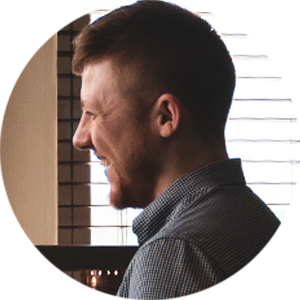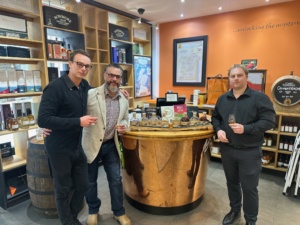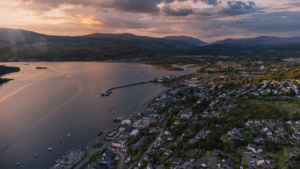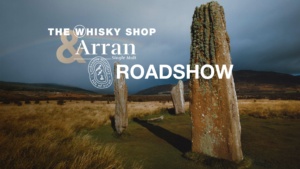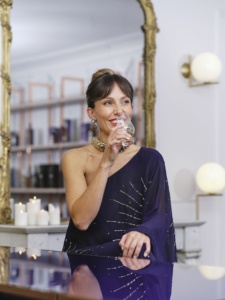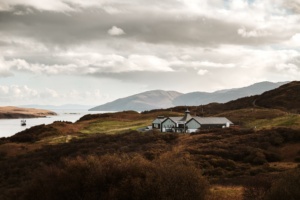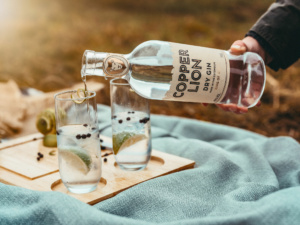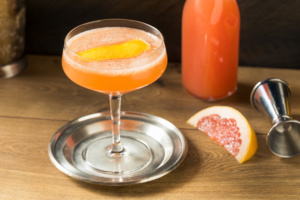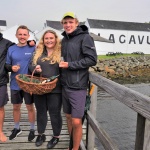Lyan King
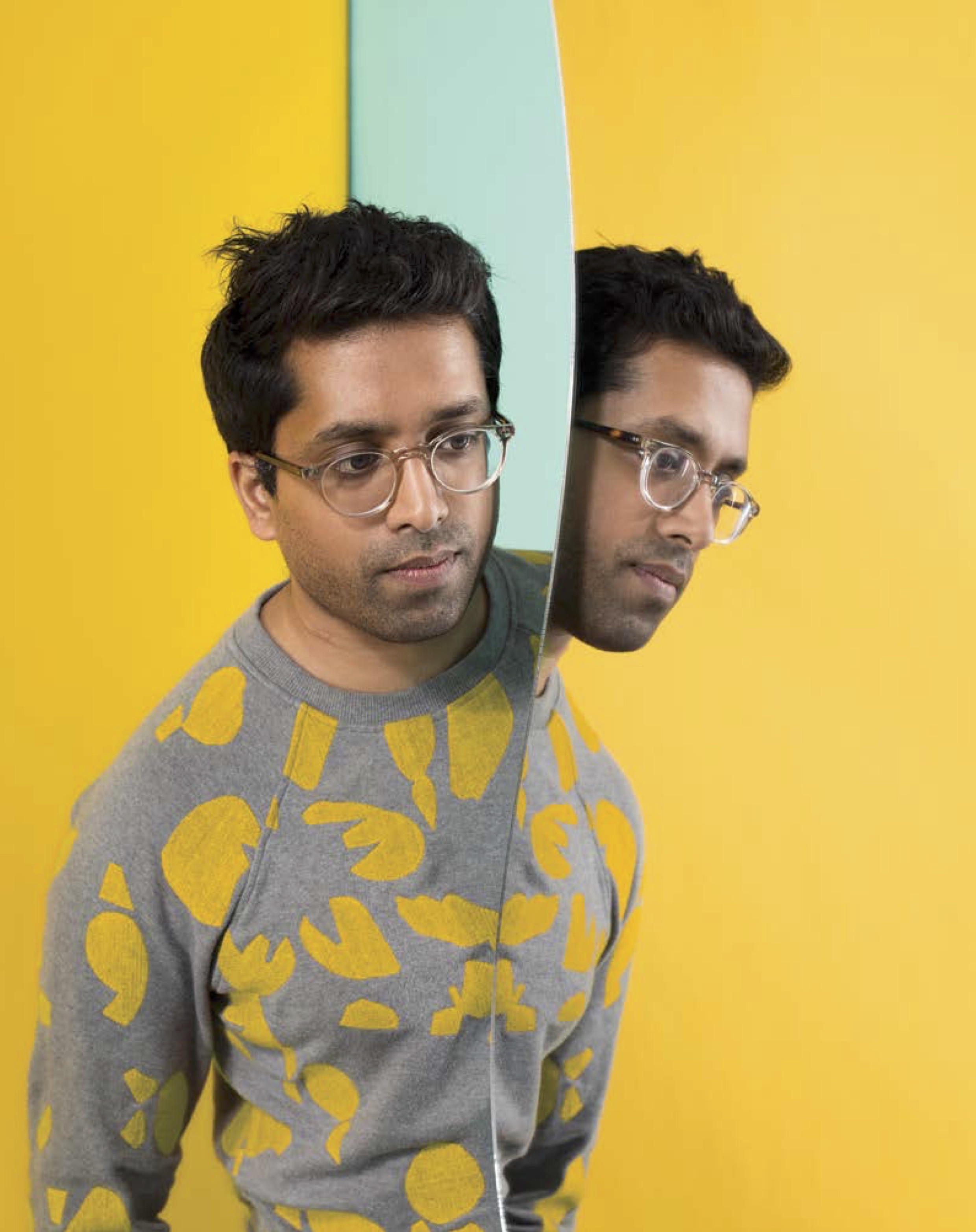
Today we’ve met you in Edinburgh, although you’re usually based in London. What brought you up?
I was hoping it was going to be a bit of a chance to get home – well I count it as home, which isn’t exactly the truth, but it feels like home coming back up. It’s actually a trip up for Tales [of the Cocktail].
Studies took me to Edinburgh, and I stayed for quite a while, but that’s also because I stayed studying a bit too long… I was a perpetual student – almost 8 years in further education, which is very self-indulgent!
You seem to have studied everything under the sun...
When I left school, I wanted to learn something practical that was based on my interests. I had a place to go down to London to do my Fine Art foundation at [Central] St. Martin’s. It was the thing I’d always loved going through school, and it was very much the focus of personal life and academic life.
In the gap before that I enrolled at the catering college in Birmingham, which is technically home. I started training to be a chef but got kind of strong-armed into doing a Culinary Arts and Management course and didn’t like it at all. I wanted to spend a bit more time understanding the professional set-up, and how that related to my view of food and drink, and it completely removed me from that interaction.
I suppose that’s where the bartending side cut in. I switched from kitchens to bars, and then that became the constant as I went around studying.
How did that then lead to you moving to Edinburgh?
My tutor [at Central St. Martin’s] had gone from academia into arts and having spoken with her trying to explore what I wanted to do, interest-wise, it made sense to change tack.
So that’s an undergrad in Biology, a Fine Art foundation and then Philosophy…?
I switched from Biology to Philosophy. My old man was really supportive and said “what you don’t want to do is go down a certain path and then end up hating your life”, which was great! Because it could easily have been “just finish one of these things and get on with it”.
Do you think that all your educational pursuits have fed into what you do now?
Oh yeah, for sure! When I was at school, there was a bit when we had to do all the careers stuff. I went through all of those hoops, and I was the only person that came out with nothing, and I thought, “Great! I’m unemployable…”!
I suppose from an academic perspective, I always liked the contradictory things. I was art and science. To me they’re the same thing. I don’t understand why we have this weird rift between them. For me it was always about finding something that hit across both sides.
Was there any one place you worked that really helped you define and develop your ideas?
From when I was bartending in Birmingham, down to London… Everywhere had a theme to it. The thing that really rang true to me with Bramble [Edinburgh] was that, for me, it stood for everything that bartending was about. There was no theme to it.
Ultimately it was a bar where you’re there to help people have a better time. You’re host, you’re DJ, you’re obviously bartender. You’re looking after the lighting, you’re looking after if it’s the right people in the right area of the bar for them to have a good time. And you’re tailoring the drinks as a tool on top of that, but it’s not the focus of the bar. Bramble is still my favourite bar in the world.
Do you still consider all those factors every time you serve a drink?
That, to me, is the main focus of it. Everyone I’ve now trained or work with will know the thing that’s important to me isn’t the drinks. Hopefully the drinks are going to be amazing as well. But if you aren’t taking care of that other stuff, the drinks aren’t going to save someone from having a bad night.
If you’re making people feel special, if you’re trying to cater to their needs as an individual, not just as a generic person coming through the space – you know, if the music and the lighting is right, then the drinks can become a memorable experience. But if you don’t set up all of that other stuff, then it’s just fluff, as one of my team says “it’s like lipstick on a pig”! I do believe food and drink can be an incredible thing, but it’s only part and parcel of everything else around it.
Do you see a lot of novelty in the industry?
Yes, you do see a lot of novelty. It’s fun doing events where you can play with people’s senses and really direct the experience, but then that is a novelty.
The thing I love about bars – and actually the reason why we were looking for a pub space when we were opening White Lyan – is that there’s a thing about pubs where it is a democratic space. It’s about everybody being able to be there, for whatever reasons; a bar should be able to cater to that, in my opinion.
What prompted your move from Edinburgh to London?
My masters year in Philosophy and my final year at Bramble was also the year I won UK bartender of the year. That was 2009, so I was going back and forth to London every weekend.
When I was doing that a very close friend of mine, Nick, was working for Morrison Bowmore and actually, it was kind of through Japanese whisky that I ended up moving to London.
How was that?
Jas [of Bramble] had put Yamazaki an Hibiki into Oloroso, the first bar I worked in Edinburgh. I remember trying it and being like, “This is incredible!” and everybody just being very dismissive.
I’ve always liked that idea of trying to flip prejudices. The first bar I ever worked in was a tequila restaurant in Birmingham and drinking habits in Birmingham in 2002 were not very classy. I was trying to convince people that tequila was not what they thought. I’ve always been a fan of doing this – when somebody ostensibly projects a dislike of something, I try and change their mind.
Nick knew there was a European role with Suntory coming up and part of it would be based in London, and my sister had just moved back from New York, some close friends had moved back to London, so it was a few things coming together.
What changed your mind about working exclusively in the whisky industry?
I’d been interested in how the biological aspect of my studies could fold into food and drink; this was a time before anything even like the word ‘molecular’ gastronomy and mixology was really about. I was looking at how I could understand taste to help design a way of helping people connect to a drink they would like through understanding their palates. So, I started exploring the physiology of taste, because that was where my understanding was, as a biology student.
I’d been doing a lot of this research for myself, experimenting and not really having a platform for it. I said I’d come back down and work if I could run the lab at 69 Colebrooke, where I’d already done some work. It was a very well-known bar at the time, had all the equipment I wanted to be playing around with, and gave me space to explore that stuff. The idea was I was going to be doing that and Suntory stuff.
Fortunately, or maybe unfortunately, the Suntory stuff didn’t happen then, as a result, the bar stuff took off. In hindsight, I think an ambassadorial job would’ve been totally against what I would’ve loved. I mean, I’m sure I would’ve got to work with some amazing whiskies, but it didn’t happen!
We’re sure you’ve worked with some amazing whiskies anyway!
That’s very true. Doing the work I was doing with Suntory, I knew that their stocks were scarce. We were making cocktails and amazing stuff with it, and I loved being able to drink those cocktails in the way that we did. I got to pour Yamazaki 18 out for huge numbers of people. I don’t regret it but now I’m thinking “Christ they’re really expensive whiskies to get hold of!”. Well, more suitably priced.
Do you have strong opinions either way on how whisky is currently priced?
A bit of both… Actually, it’s completely fair for these things to be priced the way they are. Whisky was massively underpriced for a long time. The only thing I do think is a shame is that there are sets of flavour that it’s very hard for people entering the whisky drinking scene now to be able to afford to experience. I’ve been fortunate to drink stuff from a different era.
There’s probably two sides to it. They are fair prices, because they are wonderful, rare things and so much has gone into them, and that should be reflected in the price. But at the same time, it means it’s going to be very hard for people to get the full breadth of that range of flavours that can exist within whisky.
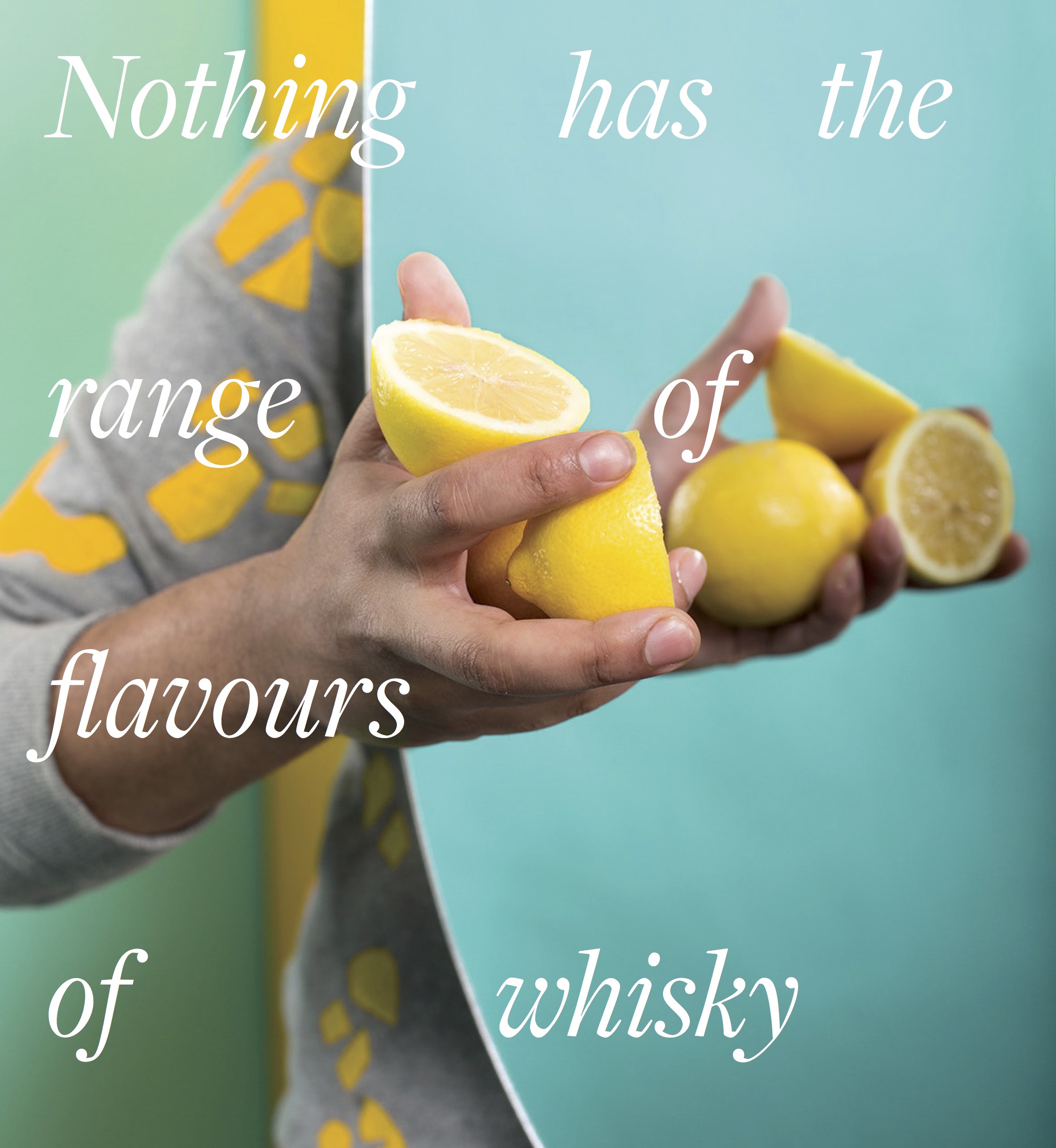
Do you feel that applies to other spirits as well?
Nothing has the range of flavour as whisky. Whisky is something that is inclusive – everybody can enjoy it. It is delicious at £30, as well as it is at £30,000. I think whisky is kind of unique in that. I don’t think I know of anything that sits in the same democratic space as well as in the super-luxury sense.
We’re talking on the eve of the closing of your first solo venture, White Lyan…
At the moment it’s still 100% excitement, but I think tomorrow there’s going to be a little bit of sadness in there as well.
It’s a very different thing to doing projects for other people. When it’s your own, it’s proper blood, sweat and tears into it! Not that it was a difficult bar to get open because of anything going wrong. It was difficult because of the way the rest of the industry perceived it.
The idea is much older than the bar is. Straight off the bat people were… Dismissive is probably the most polite way of saying it. And there were people from the industry who were saying “that’s not going to work”.
What was it that people reacted negatively to?
I think people saw it as an insult, that we were saying that traditional way of people doing bars is ‘wrong’ or is ‘out of touch’ or whatever it was that they projected that we were saying.
What about White Lyan did defy tradition?
There was no ice, and no fruit. That was the thing the industry had built up to – people had big blocks of ice on the bar top and there was a fruit bowl and they were talking about how they only “squeeze their lemon juice the 10 seconds before they make their drink”. And that was what was standing for the mark of a ‘true’ cocktail bar.
So, to then have something that was completely the opposite to that – or seeming so, from the outside – people saw it was two fingers to the rest.
Do you think people saw you as a bit of a novelty?
Totally. People thought it was a gimmick. Particularly when they heard ‘the bar with no ice’ before we’d actually opened the doors, there were all sorts of rumours about what it was going to be! Some very odd stuff.
A lot of people described it as ‘molecular cocktails’ and that’s a term that doesn’t mean anything, but also I never saw what I did as that… I was folding in science and arts into my work, but it wasn’t ‘science’.
By the time we go to print your new venture replacing White Lyan will be underway – what’s that going to be like?
I can tell you about part one, but I won’t be able to talk about part two because there are certain things lined up in terms of exclusives.
Of all the different experiences I’ve had in my life, opening a venue is one of the most stressful and difficult. Robin [our operations manager] is doing two openings, so we decided it was a really good idea to front load everything into this period of time [laughs].
So not only was it Tales of the Cocktail Festival and the new book, it was two venues and all the other stupid personal stuff we thought it was a good idea to throw into that mix as well! I’ve actually just finished judging three different awards…
Is it strange, being elevated from award-winner to judge?
I see it more as a way of celebrating other people, rather than judging them. Because everybody who is nominated for these things has done wonderful stuff. If you say you’re ‘judging them’ it sounds like it’s a superiority thing, which it’s not! I think it’s more of a chance to review someone’s beautiful baby and go, “look how amazing this is!”.
It’s really nice to be able to help mentor people and be able to give advice and feedback. And it’s also a wonderful way of just seeing what’s happening in the industry.
I couldn’t do those competitions anymore. The prizes are completely out of the league of when I was being a bartender. Tim Phillips got a bar out of winning World Class – it’s crazy, I got a mixing spoon! It’s a different ball park now. But the stresses these guys go through is like a different level to what I had to do, too.
You say you like the facet of mentoring people – who were your mentors?
There have been several people – quite a few Scots. And don’t get me wrong, there have been loads of different peers who’ve been really influential on me, but I suppose in that ‘mentor’ role it is Mike and Jas [owners of Bramble], Ian McLaren and Craig Harper [award-winning bartenders]. They were huge in terms of encouraging me to do things I was really passionate about but felt a bit shy about, and also passing on their years of experience.
Do you have any protégés yourself?
I’m going to be really biased and say this, but I really do have the best team in the world. The people we have working for us are remarkable.
But I see it as I’m working alongside them, rather than mentoring them. I don’t think there’s anything I can add at this stage – we’re still trying to learn about what we’re doing, so I don’t think there’s a huge amount of stuff I can pass on in terms of teaching it yet.
So tell us more about your new venture, Super Lyan…
So, in a really quick one-week turnaround, Super Lyan launched on April 14th 2017.
What we’ve been saying about White Lyan – how, when we launched, it was either controversial or it was weird – is because it was meant to be a commentary on what was around in the industry at the time. And it’s no longer weird, so we want to make it weird again.
White Lyan wasn’t just about the ingredients. The set-up, the way we wanted to open up the language around the drinks, the way people could order them, all of those things… Super Lyan is still about being really fun and accessible. That’s a big part of what the bar was about, and we definitely want to make sure that we can continue with that.
It’s also about looking at the idea of familiarity. There’s a thing in the industry where people think classic cocktails are everywhere: of course you know what a Negroni, or a Manhattan, or whatever, is.
I think that there is an amazing ability for cocktails to add to an experience, to have that amazing addition to people’s nights out. And classic cocktails, they’re timeless. But that doesn’t mean we still can’t challenge the classic formula, or challenge the way of doing things, and open it up in a different way to a wider audience of people.
So, downstairs at Super Lyan we’re going to take those classic formulations, we’re going to switch them up, we’re going to still stay true to what they are… It’s taking classic cocktails and putting them through our frame, and about how we can make that accessible, by removing all the barriers to them. That’s the plan. It will have ice and citrus, but it’s not about removing the things that we started with at White Lyan. It’s taking those lessons forward.
Are you continuing with your ‘closed loop’ cocktails and the no waste ideas?
We want to be able to use ingredients in a considered way, so not just using them in a primary sense and throwing the rest in the bin. We will start to bring fresh ingredients in, but we will use them in their entirety.
When you’re creating new cocktails, do you work backwards from an idea or forwards from finding an ingredient or method?
It depends. Certain times you might taste something and it reminds you of something else. Or, if you take something like a whisky, it might be linked to the idiosyncrasies of the whisky itself – that might be the flavour, it might be the brand story, or even what it stands for.
We were making cocktails with very rare whiskies. And I’m not saying that we did that for the ‘bling’ of it. It was more to challenge the idea around what the luxury is, and that idea of something fleeting.
If you’re trying to get people to realise what goes into something like a rare whisky, using something that forces a contemplation of it forces you to engage with something that is not the most tangible part of it. You’re getting people to understand that product in a different way.
Other times, it might be conceptual. So, I made a Concrete Sazerac – that was almost about a different idea of time, but it was also around things like minerality.
How have you come up with the concepts for your bars?
There are amazing bars around, and I don’t feel the need for us to repeat that, so the idea of doing things differently is a key part. Do weird stuff, do stuff that’s really fun. Do things that are a-typical, but still accessible. It’s not about doing something for us, it’s about having something that feels out the norm, so people feel excited about coming to experience it.
Then there’s very much the side where it’s things that can be part of people’s home lives as well, because ultimately, if they have better drinks at home, they’ll enjoy the weird stuff; they’ll go outside their comfort zone a bit more if they come into the bars. That’s what our bottled cocktails are about, that’s what the books and any of the TV and online stuff is about. Because it’s stuff that’s easy to do at home – it’s demystifying the whole idea.
In America they at least have a culture of making drinks at home. Here we have lonely gin and tonics! It’s an amazing drink – with a couple of easy steps, if people are informed about it in a way that feels everyday, it can become amazing every day.
Aside from America, are there any other countries or drinking cultures you’re inspired by?
I think the drinking culture is better here than in America, but it’s just very much in people’s homes in the U.S. It’s much more everyday, more integrated in their life. Even around the idea of food – you get a lot of cultures where it’s historic; you go to Italy, you go to Spain, you go to France. The food and drink share equal pegging on the table because they’ve grown up together.
There are bits of different cultures that are nice to be able to borrow on, and the thing that I love about travelling through food and drink is that you get to see how different places integrate food and drink into their lives. You can go into someone’s home and you get a feeling of being part of their world through food and drink. Music’s another one that really has that. But otherwise it’s quite hard to enter another culture without feeling like a total outsider. Whereas if it is something that is universal like food, drink and music, - something that is really entrenched in ‘human’ – it’s much easier to do.
 4.7/5 with 10,000+ reviews
4.7/5 with 10,000+ reviews